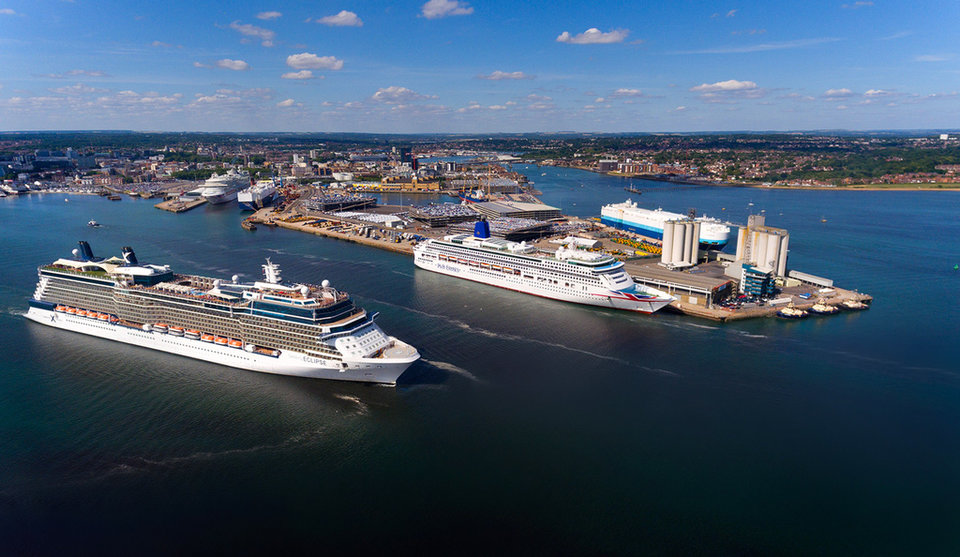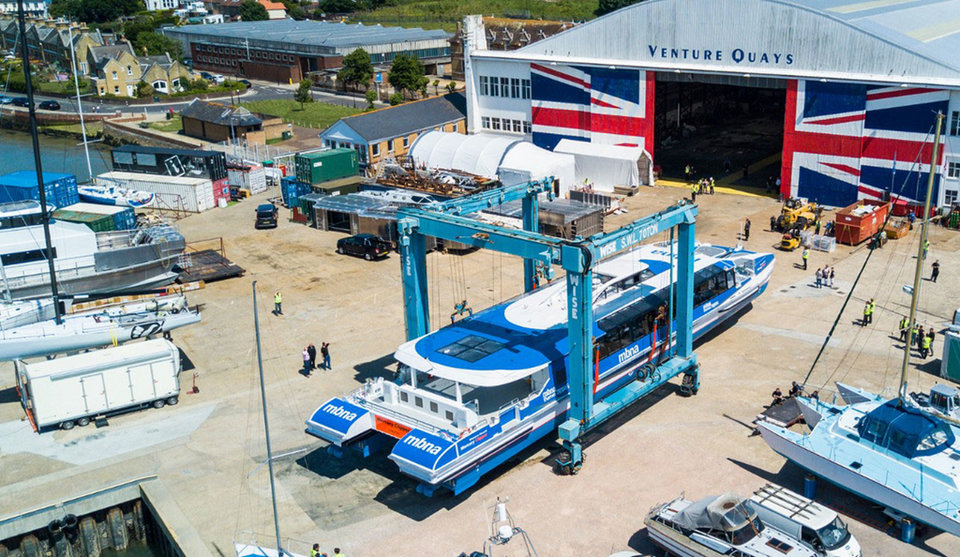Operations
Restart, recover, renew:
inside Maritime UK’s Covid-19 Sector Recovery Plan
British trade association Maritime UK has rolled out its Sector Recovery Plan, which sets out joint action for industry and government in three stages. Julian Turner talks to Maritime UK director Ben Murray about the environment, regional competitiveness and innovation in the wake of Covid-19.
Image: Maritime UK
A recent survey found
that 66% of maritime businesses expected their turnover to decrease, while 11% of respondents were ‘not very confident’ their business would survive the next 12 months.
The coronavirus pandemic has also impacted the passenger transport industries and leisure activities such as boating, where the current government regulations have made business as usual impossible, as well as manufacturing orders and supply chains, and wider areas such as education and training.
So what is the plan? In the Q&A below, Maritime UK director Ben Murray explains how the trade association has laid out the next steps to recovery for UK shipping, and why industry collaboration will be paramount.

Maritime UK director Ben Murray.
Image: Maritime UK
Julian Turner:
How has Covid-19 and the lockdown impacted the UK maritime industry?
Ben Murray: Serving the rest of the British economy by enabling 95% of all UK trade, the sector is particularly exposed to macroeconomic shocks and responsive to the performance of the wider economy. With reduced imports and exports, the maritime supply chain has been severely hit.
While some parts of the sector are getting back to business, others will be unable to do so for a substantial period of time, either due to compliance with government policy or trade seasonality.
What measures has the sector taken to mitigate the immediate consequences of coronavirus?
In addition to the work with government, our members have created industry resources; for example, guidance to allow the ferry industry to get back to business. Similarly, our regional members have created toolkits to support companies in creating their own recovery plans and risk assessments.
Maritime UK has also delivered a series of targeted webinars in partnership with Maritime London and BDO on the various government support schemes available and how to access them; with the British Ports Association, Hill Dickinson and Stellamar on the furlough scheme and how to prepare for its conclusion; and with Mersey Maritime and Western Union on a ‘Global Trade Outlook Series’.
We will shortly be running another webinar with the Society of Maritime Industries and Securewest setting out trade advice details in key maritime markets – specifically as ‘second waves’ appear.

The Covid-19 pandemic has particularly impacted passenger transport industries such as ferries and cruises. Image: Maritime UK
What is the Sector Recovery Plan and how will it help the maritime sector ‘build back better’?
Maritime UK has worked to support the sector throughout the coronavirus crisis. Initially, this involved shaping government support programmes, identifying gaps in provision, and working with the government to respond. This was led by Maritime UK’s Business Continuity Taskforce and its risk register, which looked at the sector risks, their likely severity and suggested mitigation measures.
Then, the work turned to restarting. In collaboration with our members, we worked on shaping the government guidelines to allow different parts of the sector to return to economic activity.
We were clear very early on in the process that we had an opportunity to make a case for a different sector post-Covid or, to use the phrase, to ‘build back better’. So, the Taskforce used the risk register and long-term themes from Maritime 2050 in order to develop the Maritime Sector Recovery Plan.
This takes the same shape as Maritime 2050, which outlines a clear set of actions for both industry and government. The Sector Recovery Plan was written by all members of Maritime UK; national trade associations, social partners, professional institutes or regional cluster organisations.
What are the three stages that comprise the Sector Recovery Plan?
The three-staged approach mirrors that of government and begins with ‘Restart’. In this phase, it is critical to ensure comprehensive planning, consistency, and consideration of those areas of activity that will not be able to restart. Continued support to ensure companies are able to progress to later recovery stages is key, particularly those that cannot return to viable activity for some time.
‘Recover’ is about building further resilience for businesses to ensure they recover a level of viability and creates sustainability for them, their employees and parts of the wider economy dependent on their performance. This will be delivered by the provision of new support initiatives and best practice.
‘Renew’ challenges industry and government to deliver action to revive and transform the sector to ensure its global competitiveness; for example, by driving economic growth in coastal communities and through green growth. The plan identifies existing relevant strategies, such as the Five-Year Plan for maritime exports and investment.

The Sector Recovery Plan aims to drive a green, regionally balanced recovery for the UK maritime industry. Image: Maritime UK
Has Covid-19 necessitated a reappraisal of the Maritime 2050 strategy?
The ‘Renew’ section of the Sector Recovery Plan offers a reappraisal of industry’s prioritisation of Maritime 2050 recommendations. By and large, we are finding that the long-term nature of the strategy has meant that most have remained relevant; however, there are some areas that either need to be brought forward or have found a more receptive audience within the government.
Our national priorities are competitiveness, regional growth, innovation, environment, people and action, as set out in our Strategy Plan. These are the key areas of joint interest across the maritime industries and so where Maritime UK focuses its work; they also map across to Maritime 2050.
What stage is Maritime UK’s Sector Recovery Plan at in terms of timelines?
We are constantly updating it, and the next version will have greater detail in terms of a site map on Maritime 2050 recommendation implementation. The Sector Recovery Plan is also being used to inform briefings with politicians from across the major parties. In the first half of July alone, we briefed the Shadow Transport Secretary, the Investment Minister and the Business Secretary on the plan.
It also forms the basis of the Department for Transport’s Covid Recovery ‘Route Map’. We are in the process of delivering a number of workshops in partnership with the government in each area of focus.
As our chair Harry Theochari says in this introduction to the Sector Recovery Plan, this is a moment to think about the kind of country and economy that we want to build, rather than simply rebuilding what we had before. That, coupled with the challenges our sector faces, presents us with choices.
The maritime sector is well-placed to drive a green, regionally balanced, export-led recovery, and this Sector Recovery Plan sets out actions for both industry and government to get us there.